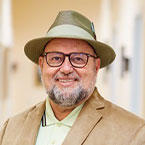What Happens Wgen a Baby Have a Heart Murmur
By: Juan Villafañe Jr., MD, FAAP & S. Kristen Sexson Tejtel, MD, PhD, FAAP
When doctors mind to a child'southward center, what they commonly hear is a simple rhythm: "lub-dub, lub-dub, lub-dub..." Sometimes, they'll hear an extra sound in between the lub and the dub. That extra sound is called a heart murmur.
Although the name is unsettling, heart murmurs are very common in children. Normally, they are normal sounds made as the blood is pumped through the centre chambers, valves and arteries--like a whooshing or swishing noise. Rarely, they may need to be checked by a specialist to rule out whatever problems.
What kind of murmur is it?
There are 2 kinds of heart murmurs: innocent murmurs and pathologic murmurs. The doctor volition listen to the murmur's loudness, timing and how long it lasts in the cardiac cycle, which is the end of ane heartbeat to the start of the side by side. Sometimes, it is difficult to tell the difference betwixt the 2 kinds of murmurs just past listening. Some eye abnormalities may not produce a murmur at all. In those cases, an echocardiogram may exist helpful.
If your doctor has a question about your child'due south heart murmur, they may refer you to a pediatric cardiologist. Pediatric cardiologists have special grooming to look for heart problems that affect children.
Innocent murmurs (functional murmurs)
Innocent murmurs are harmless, simply common. Over two-thirds of school-age children may have an innocent murmur. They may become louder if a child is excited, stressed, or ill. Many disappear every bit the child grows, although some do last into adulthood. Your medico can find these murmurs by simply listening to your child's heart with a stethoscope.
Children with innocent middle murmurs practice not have a related center problem. They do not need whatsoever medical treatment, surgery, sports restrictions, or follow-up with a pediatric cardiologist.
Even when pediatricians believe a kid's murmur is innocent, however, they may nevertheless recommend a second opinion from a pediatric cardiologist to be sure. A referral to a pediatric cardiologist does non mean that the murmur is abnormal. Pediatricians are more likely to refer an baby with a middle murmur that occurs during the first half dozen months of life.
Pathologic murmurs
Rarely, a murmur can signal a problem with the heart. This is called a pathologic murmur. Pathologic murmurs are much rarer and occur in less than i% of the population. Sometimes, they may exist related to built heart defect that a baby was built-in with.
Why does it sound similar that?
Pathologic murmurs are usually loud and may include an extra sound chosen a click, which is heard with a stethoscope.
Causes of pathologic murmurs may include:
-
abnormal connections between the right and left eye chambers.
-
abnormal connections betwixt the major claret vessels coming from the middle.
-
blood that flows through a thickened or leaky heart valve.
Sometimes, the murmur gets louder when the patient changes position, such as standing upward. Sure conditions are linked to pathologic murmurs, including:
-
Mitral valve prolapse with regurgitation: The mitral valve moves in an abnormal way and leaks.
-
Hypertrophic cardiomyopathy : An aberrant thickening of the heart.
Pathologic murmurs frequently are not life-threatening
While not normal, pathologic murmurs often are non life-threatening. They usually are heard when a child has a minor center defect. But, if a child has a heart murmur and besides develops symptoms such as shortness of jiff, trouble eating or gaining weight, sweating while eating, or cyanosis (a bluish tint to lips and skin), information technology could be a more serious status that needs medical attention right away.
Your child'south pediatric cardiologist may do some testing, using an electrocardiogram and an echocardiogram, to confirm any centre aberration.
Conditions that may exist linked with pathologic heart murmurs
Certain syndromes or genetic conditions may be associated with a cardiac abnormality related to heart murmurs. These include:
-
Down syndrome. All children with Down's syndrome should have a cardiac evaluation. Many of these patients may accept a elementary or more circuitous eye defect.
-
Patent ductus arteriosus. Premature infants may take this status. Information technology occurs when a blood vessel (ductus arteriosus) does not close. This causes blood to circulate abnormally between the two major arteries almost the middle. Information technology is frequently found shortly after nativity and can be confirmed past echocardiography.
Practice murmurs need treatment?
Innocent murmurs practice non require treatment. If your child has a pathologic murmur, your pediatrician and pediatric cardiologist volition talk with you about whether handling is needed. Depending on the blazon of pathologic murmur your kid has, they may need medication and follow-upwardly intendance, or referral to a pediatric center surgeon.
More Information
- HealthyChildren.org: Heart
About Dr. Villafane:
 Juan Villafane, MD, FAAP, is a pediatric cardiologist. Within the American University of Pediatrics, Dr. Villafane is a fellow member of the Section on Cardiology and Cardiac Surgery Publications and Communications Commission.
Juan Villafane, MD, FAAP, is a pediatric cardiologist. Within the American University of Pediatrics, Dr. Villafane is a fellow member of the Section on Cardiology and Cardiac Surgery Publications and Communications Commission.
Virtually Dr. Sexson Tejtel
 S. Kristen Sexson Tejtel, MD, PhD, MPH, FAAP, is a pediatric cardiologist with interest in cardiac imaging and caused heart disease in children. Within the American University of Pediatrics, Dr. Sexson Tejtel is a member of the Department on Cardiology and Cardiac SurgeryPublications and Communications Committee.
S. Kristen Sexson Tejtel, MD, PhD, MPH, FAAP, is a pediatric cardiologist with interest in cardiac imaging and caused heart disease in children. Within the American University of Pediatrics, Dr. Sexson Tejtel is a member of the Department on Cardiology and Cardiac SurgeryPublications and Communications Committee.
The information independent on this Spider web site should non exist used equally a substitute for the medical care and advice of your pediatrician. There may be variations in treatment that your pediatrician may recommend based on individual facts and circumstances.
Source: https://www.healthychildren.org/English/health-issues/conditions/heart/Pages/Heart-Murmur.aspx
0 Response to "What Happens Wgen a Baby Have a Heart Murmur"
Post a Comment